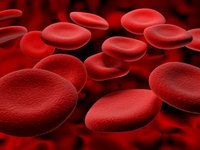Article
HIV Antibodies Respond to Vaccine
Author(s):
A recently-discovered subclass of HIV antibodies responds to a combination of vaccines, according to research published in Science Translational Medicine.

Scientists have discovered a subclass of antibodies associated with an effective immune response to an HIV vaccine, according to research published in Science Translational Medicine. The study details why two vaccines in combination sometimes are effective, when one vaccine alone is ineffective.
Georgia D. Tomaras, PhD, and colleagues from Duke Medicine examined 2 HIV vaccine trials conducted in Thailand in 2003 and 2009. The earlier trial studied an investigational vaccine among intravenous drug users, but it was found to be ineffective. The second study involved a combination of vaccines used on more than 16,000 adults. The first vaccine administered was used as a primary dose and the second vaccine, identical to the drug from the 2003 trial, was used as a booster. The combination vaccine was 31.2% effective at preventing HIV infection. This was an unprecedented success rate, but not high enough to advance the vaccine to common use.
After studying the data thoroughly, the researchers noted participants in the 2009 trial were more likely to have HIV-specific immunoglobulin G3 (IgG3) antibodies compared to patients who participated in the 2003 trial. The HIV-specific IgG3 response correlated with decreased infection risk, but the effect dissipated over time. This decline was reflected similarly in the 2009 trial.
“HIV-1 specific IgG3 is one biomarker that can be evaluated in further vaccine candidates,” Tomaras, the study’s senior author, said in a press release. “It provides a specific way to benchmark HIV-1 vaccine candidates against the one partially efficacious vaccine to date.”
The scientists hope to continue their research to test if IgG3 correlates to HIV vaccine efficacy levels.
“More is not always better with an antibody response,” Tomaras continued. “Instead, it’s the underlying quality of the immune response. Going forward with other vaccine trials, it will be important to know the subclass, specificity and antiviral functions of antibodies that are induced.”


